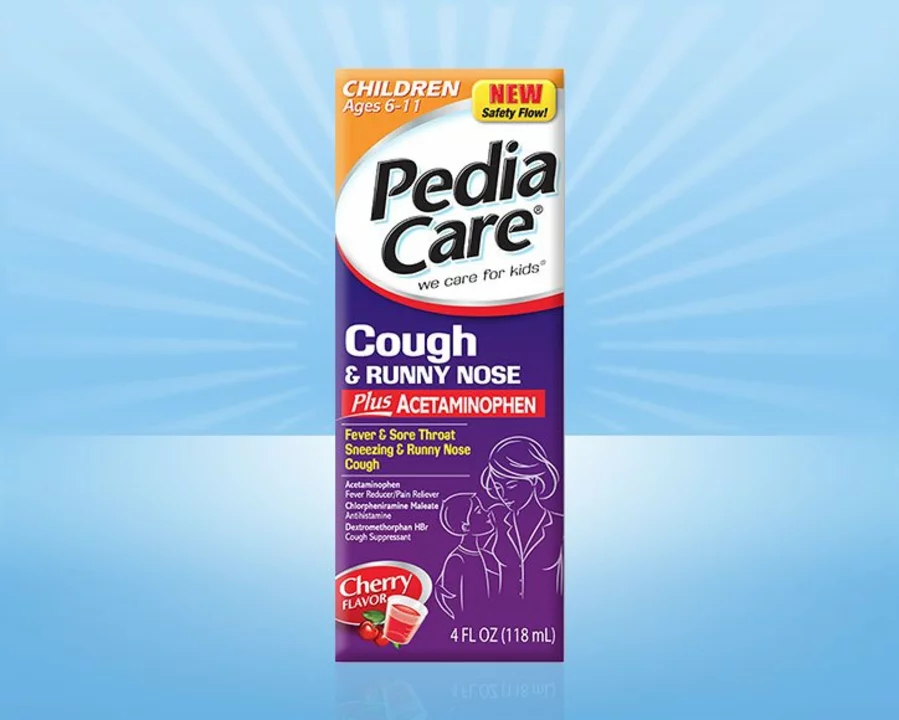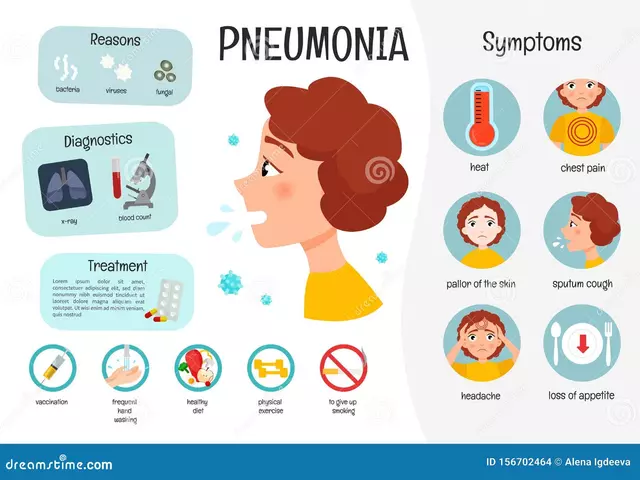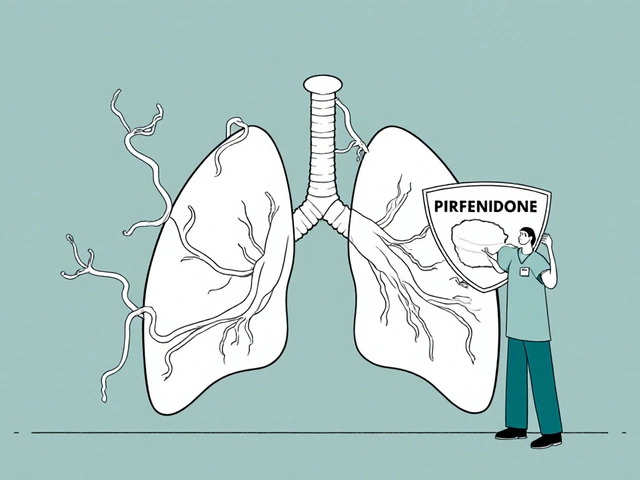Understanding Acetaminophen for Children
As a parent, it's important to understand the basics of acetaminophen for children. This over-the-counter medication is commonly used to relieve pain and reduce fever. It comes in various forms, such as liquid, chewable tablets, and dissolvable strips. Acetaminophen is considered safe for children when administered correctly, but it's essential to follow proper dosage guidelines and safety tips to ensure your child's well-being.
Determining the Correct Dosage for Your Child
When it comes to acetaminophen, proper dosing is crucial for your child's safety. The correct dosage depends on your child's age and weight. You can find the appropriate dosage information on the acetaminophen packaging or consult your child's pediatrician. It's important to stick to the recommended dosage and use the measuring device provided with the medication to ensure accuracy. Remember that giving too much acetaminophen can lead to serious side effects and even an overdose.
Acetaminophen Safety Tips for Parents
Aside from following the correct dosage guidelines, there are other safety tips that you should keep in mind when giving acetaminophen to your child. First, make sure to read the label carefully and check for any possible interactions with other medications your child might be taking. Additionally, it's essential to keep track of when you administer the medication and avoid giving it more frequently than recommended. If your child's condition doesn't improve or worsens after taking acetaminophen, contact your pediatrician for further guidance.
Recognizing the Signs of an Acetaminophen Overdose
As a cautious parent, it's important to be aware of the signs of an acetaminophen overdose in children. Symptoms may include nausea, vomiting, abdominal pain, and extreme fatigue. In more severe cases, an overdose can lead to liver failure, coma, or even death. If you suspect your child has taken too much acetaminophen, it's crucial to seek medical help immediately. Early treatment can help minimize the risk of severe complications.
When to Use Acetaminophen for Fever and Pain
Acetaminophen is effective for treating pain and fever in children, but it's important to know when to use it. For fever, it's generally recommended to administer acetaminophen if your child's temperature is above 100.4°F (38°C) and they are feeling uncomfortable. For pain, acetaminophen can be used to relieve mild to moderate pain from headaches, toothaches, muscle aches, and other common sources of discomfort. However, if your child's pain is severe or persistent, it's best to consult a healthcare professional for further evaluation and treatment.
Alternatives to Acetaminophen for Children
While acetaminophen is a popular choice for pain relief and fever reduction in children, there are alternative medications available. One such alternative is ibuprofen, a nonsteroidal anti-inflammatory drug (NSAID) that can be used for children older than six months. Like acetaminophen, it's essential to follow proper dosage guidelines and safety tips when administering ibuprofen. There are also non-medication options for managing pain and fever, such as using a cool compress or providing extra hydration. Always consult your child's pediatrician before trying a new medication or treatment approach.
Storing Acetaminophen Safely at Home
Proper storage of acetaminophen is essential for your child's safety. To prevent accidental ingestion or overdose, store the medication in a secure, childproof container and keep it out of reach of children. Additionally, always check the expiration date before administering acetaminophen to your child, as expired medication may not be as effective and could potentially be harmful. By following these storage tips, you can ensure acetaminophen remains a safe and effective option for your child's pain and fever relief needs.






Lori Johnson
I've seen so many parents panic over a 101°F fever and immediately reach for the acetaminophen. Honestly? If your kid is playing, laughing, and drinking water, let the fever run its course. The body knows what it's doing. Overmedicating is just as dangerous as undermedicating.
Nishigandha Kanurkar
EVERY SINGLE PHARMA COMPANY IS LYING TO YOU!!! ACETAMINOPHEN IS A COVER-UP FOR THE REAL TOXINS IN THE WATER SUPPLY!!! THEY WANT YOU TO THINK IT'S SAFE SO YOU'LL KEEP GIVING IT TO YOUR KIDS AND NEVER ASK WHY THEY'RE SO SICK IN THE FIRST PLACE!!! THEY CONTROL THE DOCTORS!!! THE FDA IS A SHAM!!!
Tatiana Mathis
It's so important to remember that dosage isn't just about age-it's about weight, and even then, there's variation in metabolism. I always double-check with my pediatrician's chart and use the syringe that comes with the bottle, never a kitchen spoon. And I write down every dose in a little notebook. It sounds obsessive, but when you're juggling two kids and three meds, it's the only way to avoid a disaster.
Michelle Lyons
I wonder if they're hiding the fact that acetaminophen is linked to autism rates rising since 2005... the CDC won't talk about it. But if you look at the graphs side by side... it's not coincidence.
Cornelle Camberos
The administration of acetaminophen in pediatric populations requires rigorous adherence to established pharmacokinetic parameters. Deviation from the recommended dosage regimen constitutes a clinically significant breach of standard-of-care protocols and may result in irreversible hepatic damage. One must exercise extreme caution.
joe balak
I just give it when they cry and have a temp over 100.5. Works. No problems.
Iván Maceda
I don't trust those little liquid bottles from the pharmacy anymore. I make my own dose with purified water and natural extracts. America's gone soft. Back in my day, we used cold compresses and prayer. 🙏
Vrinda Bali
In our ancestral lineage, we never relied on chemical substances to tame a child's fever. The elders used neem leaves, turmeric paste, and fasting. Modern medicine has severed us from our roots. What have we become? A nation of pill-popping zombies, blind to the wisdom of our ancestors!
John Rendek
Stick to the weight-based chart. Use the syringe. Write it down. You've got this.
Sonia Festa
I just wing it. If my kid’s got that 'I’m about to die' face, I give ‘em a splash of the pink stuff. If they start dancing again? Perfect. If they turn into a zombie? Well, that’s what ERs are for 😎
Sara Allen
I dont even read the label anymore. I just guess. My kid has had this stuff since he was 2 months and hes fine. Like why do they even make different bottles? It's all the same stuff right? Plus the red one tastes better so i use that one always. And i give it every 3 hours cause why not. My mom did it and i turned out fine lol
Amina Kmiha
They say it's safe... but have you seen the lawsuits? The hidden ingredients? The fact that every bottle says 'do not exceed' but never says WHY? They're not warning you-they're hiding it. And the doctors? They're paid by Big Pharma. I stopped giving it to my daughter after I read the 2017 FDA whistleblower report. 🕵️♀️💊
Ryan Tanner
You're doing great just by being this careful. Seriously. Most parents don't even know what acetaminophen is. You're already ahead. Keep using the syringe, keep tracking doses, and don't stress if you miss one by 5 minutes. Your kid is safe with you. 💪
Jessica Adelle
It is an abomination that parents are permitted to self-administer potent pharmaceuticals without formal certification. The lack of regulation in pediatric pharmacology is a national disgrace. One must be licensed to operate a lawn mower, yet anyone may dispense acetaminophen to a child with no oversight. This is not parenting-it is negligence.
Emily Barfield
It's fascinating how we've reduced the complexity of childhood illness to a single molecule-acetaminophen-as if pain and fever are problems to be erased rather than signals. What are we teaching our children when we medicate discomfort into silence? Is healing about removing symptoms... or understanding them? The body speaks. Are we listening-or just reaching for the bottle?
Sai Ahmed
I read the article. It's all propaganda. The real danger is the pharmaceutical industry. They push this stuff because it's profitable. You think they care about your kid? They care about your credit card. I stopped giving it. My kid got sick twice. He lived. The system is rigged.
Albert Schueller
I think the dosage guidelines are outdated. I've been using the same bottle since 2019 and my son is 8 now. I just give him what I used to give him at 5. It's the same medicine, right? The label says 'children' so it should work. I mean, how much can it vary? Plus, I always shake it real good before giving it. Maybe that helps? 🤷♂️